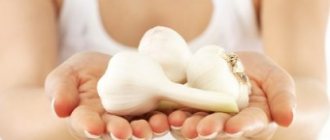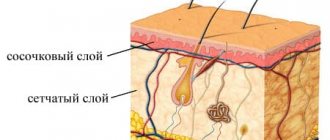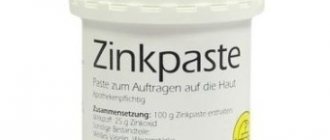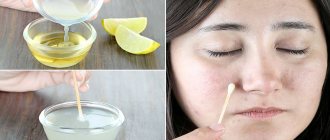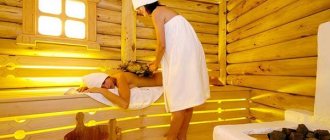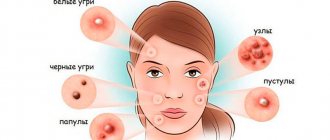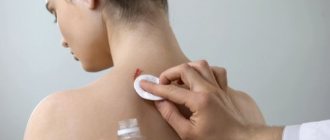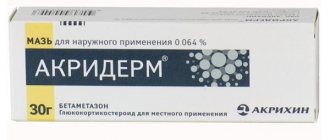Home » Face
Category: Face
Turmeric not only gives dishes a special taste and color, but also has healing properties. Turmeric's medicinal properties are mainly due to a polyphenol and a powerful antioxidant called curcumin, which can help manage many inflammatory conditions, including acne. Turmeric has therapeutic benefits for your skin, whether taken orally or applied topically. In this article, we have discussed the benefits of turmeric for your skin health and how you can use it for acne and pimples.
- Side effects of using turmeric for acne
- How to use turmeric for acne and pimples?
- Side effects of using turmeric for acne
- How much turmeric to take daily for acne?
- How long does it take for turmeric to clear up acne?
- Is it safe to use turmeric on pimples?
- Are there any risks of an allergic reaction to curcumin?
Side effects of using turmeric for acne
It suppresses acne-causing bacteria
Curcumin has antibacterial properties. In a test tube study conducted on pig skin, curcumin (along with lauric acid) was found to inhibit the growth of P. acnes, a bacteria that causes inflammatory acne.
It may reduce inflammation
Curcumin has anti-inflammatory properties. Research shows that when taken orally or applied, curcumin may help reduce inflammatory acne and other types of inflammation to keep your skin healthy.
Turmeric May Help Improve Dark Spots Caused by Acne
A study has shown that a cream containing turmeric extracts helps improve hyperpigmentation. Hence, it can help in fading dark spots left behind by stubborn acne. However, there are no studies evaluating the effects of curcumin on acne scars.
Turmeric has other health and skin benefits such as:
- It slows down aging, delaying the onset of age-related health problems by suppressing inflammation caused by NF-kappa (a protein complex that promotes immunity and inflammation).
- It prevents skin damage caused by UV radiation. A study conducted on hairless mice found that turmeric extracts can prevent wrinkles and loss of elasticity caused by UVB exposure and improve skin thickness.
Now that you know how turmeric can treat acne and keep your skin healthy, scroll down to learn how to use turmeric to treat acne.
A few more tips
You can also add turmeric to face masks that are made from cosmetic clay. To do this, mix a teaspoon of turmeric with 2 tablespoons of natural clay for oily skin that is prone to acne.
For best results, use rose water to mix these two ingredients and apply this mask on your face. Let it dry and rinse with water. This face mask, the recipe for which is very simple, is used once or twice a week.
A homemade face mask of turmeric and honey can also be used to treat hyperpigmentation.
The article was written based on materials from Fab How magazine.
How to use turmeric for acne and pimples?
Turmeric and honey
Test-tube studies have shown that honey can inhibit the growth of Propionibacterium acnes and S. aureus. Along with turmeric, honey can help kill acne bacteria.
Ingredients
- 1 tsp. turmeric
- 1/2 teaspoon raw honey
Procedure
- Mix honey and turmeric to make a thick paste.
- Use this paste as a spot treatment or apply it all over your face (increase the amount accordingly).
- Leave it for 10-12 minutes.
- Rinse with water.
Do this once a day.
Turmeric and yogurt
Yogurt may not help kill acne-causing bacteria, but it does contain lactic acid. It can have a gentle exfoliating effect on your skin and together with turmeric it can speed up healing.
Ingredients
- 2 tablespoons yogurt (cottage cheese)
- 1/2 teaspoon turmeric
Procedure
- Mix turmeric and yogurt well and apply the mixture to the affected area.
- Rinse off after 15 minutes.
Use three to four times a week.
Aloe vera and turmeric
Aloe vera can help heal acne faster. This combination can promote healing and keep your skin healthy.
Ingredients
- 2 tablespoons aloe vera gel
- 1/2 teaspoon turmeric
Procedure
- Extract fresh Aloe Vera gel from the center of the aloe vera leaf.
- Add turmeric powder to this gel and mix well.
- Apply the mixture to the acne affected area and leave for 10 minutes.
- Rinse off with plain water.
You can repeat this every day or every alternate day.
Turmeric and baking soda
It is not recommended to apply baking soda to your face or skin. Additionally, there are no studies suggesting it is effective for acne. However, it is a widely used remedy. Anecdotal evidence suggests that baking soda can dry out pimples and help them heal.
Ingredients
- ½ teaspoon turmeric powder
- A pinch of baking soda
- Water (for making pasta)
Procedure
- Mix baking soda, turmeric powder and water to make a paste.
- Use the Q-tip to apply the mixture to pimples (as a spot treatment).
- Leave to dry and then rinse off.
Do this no more than twice a week.
Lemon and turmeric
Lemon is stated to have an astringent effect on the skin, which can help dry out acne. Since lemon juice can be harsh on the skin, avoid using it undiluted. It also makes the skin photosensitive, so make sure you apply sunscreen before heading out.
Ingredients
- 1 tbsp. l. lemon juice (dilute with a tablespoon of water)
- 1/2 teaspoon turmeric
Procedure
- Mix the ingredients and apply the mixture to the affected area.
- Keep it on for 10-12 minutes and then wash it off.
Do this once a day for best results.
Besan and turmeric
Besan or gram flour helps cleanse and exfoliate the skin. It helps reduce excess sebum and is considered a good option for treating acne and pimples.
Ingredients
- 1 teaspoon turmeric
- 2 teaspoons besan (gram flour)
- 2-3 teaspoons rose water or yogurt
Procedure
- Mix turmeric, gram flour and rose water well until you get a thick paste.
- Apply the paste to a clean face.
- Leave on for 15-20 minutes and rinse off.
Repeat this exercise twice a week.
Sandalwood and turmeric
A mixture of sandalwood oil and salicylic acid was found to improve acne in studies on mice. However, more research is needed to conclude the effectiveness of sandalwood in treating acne.
Ingredients
- 2 tablespoons sandalwood powder or 2-3 drops sandalwood oil
- 1/2 teaspoon turmeric
- Pink water
Procedure
- Mix sandalwood powder, turmeric and rose water in a bowl.
- Apply the paste to your pimples.
- Leave it on for about 15-20 minutes and then rinse off with warm water.
Use this acne mask twice a week.
Milk and turmeric
Milk contains lactic acid, which has a mild exfoliating effect. This mixture can keep your skin acne-free and soft.
Ingredients
- 1/2 teaspoon turmeric
- 2 tbsp. l. milk
- Cotton swab
Procedure
- Mix turmeric with milk and apply it to the affected area with a cotton ball.
- Leave on for 10 minutes and then rinse off.
Use this mask every day.
Neem leaves and turmeric
Neem leaves have antibacterial properties against P. acnes and can help you deal with acne.
Ingredients
- 10-12 neem leaves
- 1/4 teaspoon turmeric
Procedure
- Boil the neem leaves and grind them.
- Add turmeric powder to this paste and mix well.
- Apply the mixture to the pimples and let the mask dry naturally for about 10 minutes.
- Rinse off with cool water.
Do this twice a week.
Turmeric with olive oil
Olive oil can help. It is also a good base for any face mask. Massaging with olive oil mixed with turmeric can help thoroughly cleanse your face before you finally cleanse it with a gentle face wash.
Ingredients
- 1 teaspoon turmeric
- A few drops of extra virgin olive oil
Procedure
- Add olive oil to turmeric and stir lightly.
- Apply the paste to pimples.
- Keep it on for 15 minutes before rinsing with water.
- Follow it up with a mild cleanser.
Repeat this exercise every day.
Turmeric and cinnamon
Cinnamon has anti-inflammatory properties that help treat acne. A study of 20 patients with mild to moderate acne found that using cinnamon gel helped improve acne damage.
Ingredients
- ½ teaspoon cinnamon powder
- ½ teaspoon turmeric powder
- 1 teaspoon water or rose water
Procedure
- Mix both the powders with water or rose water.
- Use the Q-tip to apply the mixture to the blackheads.
- Leave to dry and then rinse off.
Use this once a day until your acne heals.
Turmeric and Apple Cider Vinegar
Although there are no studies evaluating the effects of ACV on acne, people use this popular home remedy for its skin benefits. It is thought to alter the pH of the skin, which may inhibit bacterial growth. It also has a tonic effect on the skin.
Ingredients
- ½ teaspoon turmeric powder
- 1 teaspoon apple cider vinegar (diluted with a teaspoon of water)
Procedure
- Mix a teaspoon of diluted ACV with turmeric and make a paste. Adjust the amount of ACV.
- Use the Q-tip to apply the mixture on your acne.
- Let dry and then wash.
Use once daily.
Multani Mitti and Turmeric
Multani Mitti or Fuller's Earth helps to thoroughly cleanse the skin. This ensures that the skin's pores are not clogged, thereby reducing acne. However, clay masks tend to make your skin dry. Be sure to use a moisturizer if you have dry skin.
Ingredients
- 1-2 tablespoons Multani Mitti
- 1 teaspoon turmeric powder
- Water or rose water (adjust the amount according to your desired consistency)
Procedure
- Mix all the ingredients and make a paste.
- Distribute it evenly over the entire face or just the affected area.
- Let dry and then wash off.
- Then apply moisturizer.
Use this face mask once a week if you have dry skin and twice a week if you have oily skin.
Milk with turmeric
This is the easiest way to consume turmeric and take advantage of its antibacterial and anti-inflammatory properties.
Ingredients
- A glass of milk
- 1 teaspoon turmeric
Procedure
- Add turmeric to milk and bring it to a boil.
- Drink while it's still warm.
Drink this every day before going to bed.
You can also add turmeric to your curries, rice and stews. You can buy turmeric tea and drink it. You can also go for curcumin supplements. Although these supplements are considered safe, unregulated dosage of curcumin supplements may cause stomach upset. Hence, consult your doctor before taking supplements.
Although turmeric is touted as a skin savior due to its therapeutic effects and is also widely used in Ayurvedic and traditional medicine, it may cause some side effects.
Possible harm and contraindications
The spice can stain, so it is recommended to carry out all procedures in the evening, when there is no longer a need to go outside. To minimize the unpleasant consequences of this property, it is recommended:
- Use a brush to preserve the natural color of your hands and nails;
- Protect clothes with special film;
- For those with sensitive and fair skin, choose products with minimal turmeric content;
- Use only natural spices without additives;
- Make sure there is no allergic reaction.
If you urgently need to neutralize the color, you need to use a mask with a whitening effect. It is prepared from kefir and lemon.
Taking the spice internally sometimes causes side effects:
- Vomit;
- Acute pain in the epigastric region;
- Diarrhea.
The occurrence of such reactions requires avoiding drinks with turmeric and consulting a doctor.
Masks, belongings and lotions based on the product should be abandoned if there are a number of features:
- Increased peeling;
- Ulcers;
- Pronounced spider veins;
- Allergy to a component.
Oral intake is prohibited when:
- Presence of gallstones;
- History of jaundice or hepatitis;
- Diagnosed ulcer or gastritis.
And also during pregnancy and during anticoagulant therapy.
Activation of blood circulation causes redness of the skin, which goes away on its own after 2 hours. If this does not happen, then we can assume the presence of an allergy. Taking the spice at night often provokes insomnia. Combination with drugs for diabetes causes dizziness and loss of consciousness.
Side effects of using turmeric for acne
Turmeric may cause:
Allergic reactions and contact dermatitis
Curcumin has anti-inflammatory properties, but it is an allergen. It may cause hypersensitivity and allergic reactions. Before using turmeric, do a patch test to check if you are allergic to it. If you take supplements, get an allergy test done in advance.
Turmeric may leave skin stains
Turmeric is a deep shade of yellow (close to orange), which is why it is also used as a natural fabric dye. Using turmeric may leave a yellowish stain on your skin, nails, clothing and utensils. However, after two or three washes it goes away.
Although turmeric has earned a good reputation for its healing effects and there are studies that show the effectiveness of turmeric for acne, none of these studies are conclusive as most of them were done on animals. More human research is needed to establish the effectiveness of turmeric in treating acne and pimples.
In addition, turmeric is an allergen. So be careful. Talk to your doctor to see if your skin can tolerate turmeric or other ingredients in the face masks described above.
Efficiency
To increase the effectiveness of the spice, cosmetologists recommend not only resorting to medicinal recipes, but also flavoring various dishes with the seasoning. It is also important to pay attention to the quality of the purchased spice. Turmeric against acne will give the desired result only if you use a natural product.
Like any natural remedy, turmeric does not act instantly. The key to success is the regular use of masks and scrubs throughout the course shown.
Reviews
Christina: I just recently discovered masks with turmeric, and I was amazed at how effective they are! I like the option with yogurt or full-fat sour cream most of all; pimples go away very quickly!
Marina: I didn’t notice any special results, my face smoothed out a little for a while, and the redness from acne went away, but new ones soon appeared again. But this terrible yellowness really spoils my mood, so I don’t use turmeric on my face anymore.
Olya: Good recipes, I’ve already tried many of them on myself. I recommend the scrub for the whole body, the skin is simply super beautiful afterwards. But I didn’t try the cream with oil, since natural coconut oil is already painfully expensive, and cheap counterfeits will only harm the skin.
Benefits of turmeric for skin
This spice contains many substances that have beneficial properties for the skin:
- curcumin is one of the key and distinguishing components. Thanks to it, anti-inflammatory, antitumor and antibacterial effects are achieved;
- niocin facilitates wound healing and regeneration;
- choline eliminates age spots;
- pyridoxine destroys pathogenic bacteria;
- B6 plays an important role in our body's metabolism and helps remove acne marks;
- organic acids ensure optimal distribution of melanin in the epidermis;
- macroelements and microelements such as potassium, magnesium, iron and manganese promote skin cell renewal;
- Vitamin C is a powerful antioxidant that increases local immunity;
- essential oils rejuvenate and relax the skin.
As you know, the skin is the largest organ and therefore very difficult to handle. Through it, a considerable proportion of various substances enter our body. And we have the power to use this property for the benefit of the whole organism. How can such an ordinary turmeric help in the fight against acne?
Spice composition
Turmeric is a famous oriental spice. It is a yellow-orange powder obtained from the dried roots of a plant of the genus Curcuma from the Zingiberaceae family. The substance has a rich composition, which contains various ingredients:
- Polyphenols (curcumin).
- Terpene derivatives (borneol, phellandrene, sabinene).
- Vitamins (ascorbic acid, tocopherol, thiamine, riboflavin, pyridoxine, niacin, phylloquinone).
- Minerals (calcium, phosphorus, iodine, iron).
- Choline.
In cosmetology, turmeric powder and essential oil are usually used. In addition to the roots, leaf or fruit extracts are also sometimes in demand.


